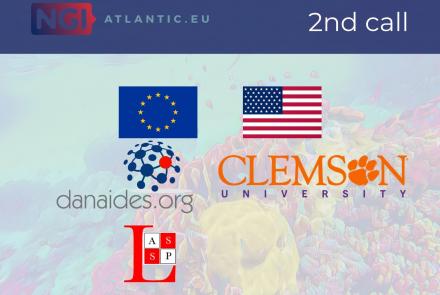The NGIAtlantic.eu project has ended in February 2023. For the follow-up initiative, visit NGI Transoceanic.

Project Coordinator (EU) :
Tracking ExposedCountry of the EU Coordinator :
FranceOrganisation Type :
Non-profit OrganisationStarting date :
The TikTok Observatory: Interconnecting Junkipedia and Tracking Exposed's monitoring infrastructures
Experimental Platform interconnections
This project aims to integrate the monitoring infrastructure developed by Tracking Exposed and Junkipedia to monitor the Tiktok recommendation algorithm. This new combined experimental pipeline will be used to establish if the recommender system differs across mobile and web applications.
When analysing social media platforms, their proprietary recommendation solutions are considered to be “black boxes”. The complexity and opacity of those algorithms requires to make an empirical comparison between the suggested contents on the Tiktok Web interface and its Mobile application, in order to answer our main research question.

Project Coordinator (EU) :
KentyouCountry of the EU Coordinator :
FranceOrganisation Type :
SMEStarting date :
FedIntersect: EU-US federated testbed for cross-atlantic experiments for urban smart intersections Experiment
Experimental Platform interconnections
The project aims at building an experimentation framework to test smart intersection applications on top of a federated testbed composed of Smart Santander city scale testbed and Columbia University’s COSMOS testbed in Manhattan, NYC. The testbed captures data from cameras at intersections, process them to identify vehicles and pedestrians and perform predictive analysis for traffic flow and detect dangerous situations. The information will be made available to application developers via common APIs and data models.

Project Coordinator (EU) :
Danaides/Sciences PO TolouseCountry of the EU Coordinator :
FranceOrganisation Type :
Non-profit OrganisationStarting date :
Responsibility to protect population through peer governance and trusted community (P2PR2P)
Privacy and Trust enhancing technologies
Peer-to-Peer Responsibility to Protect (P2PR2P) is a software developed by Danaides, which provides a peer-to-peer (P2P) platform based on integrity that allows for responsible and accountable common-pool-resources governance for humanitarian and human rights collective action. P2PR2P features are validated by the GENI and FABRIC proving grounds to keep security and privacy and decentralized data governance. This system has an impact on four different field: data protection and ownership through privacy features; system accountability and impact evaluation by means of audit trail implying DLT technology; thanks to the use of gamification P2P technology helps trust and autonomy; user-driven KPI.

Project Coordinator (EU) :
Sorbonne UniversityCountry of the EU Coordinator :
FranceOrganisation Type :
AcademiaStarting date :
CacheCash Experiment on EdgeNet
Discovery and identification technologies
CacheCash, the CDN technology that we were testing, and which is developed by our US partner at NYU, has the potential to change the nature of CDNs by involving the end-users themselves directly in serving content through machines that are under their control. It provides a service where interested users run caches and are incentivized to participate by receiving a cryptocurrency in exchange for serving content.
